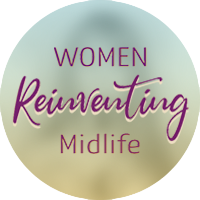The coaching industry has seen many changes in more than a decade I’ve been working in this field. It can be a bit of a smoke and mirrors arena and even us coaches say that ourselves at times. Because of this I’ve decided this month to give you some insights creating much needed transparency, so you can choose a coach that’s right for you.
First of all let’s look at qualifications
Qualifications are more important to some people than others. I can count on one hand the amount of times I have been asked about my qualifications. But I’m more than happy to answer the question and discuss if ever I am asked.
Some life coaches have formal qualifications and some don’t. Often it can be related to the length of time a coach has served. They may have started their coaching career long before formal qualifications became an option.
There are different types of qualifications a life coach can have. In Australia for example, registered training organisations now offer Cert IV and Diploma level. Other institutions offer certificate level which isn’t accredited. But that doesn’t mean their training hasn’t been good.
And then of course life coaches who haven’t done any formal training can have lots of experience in multiple areas of life. Plus they may have lengthy experience in coaching. I’ve known coaches who have limited or no formal training who are very good at what they do.
There are also coaches that have lots of industry experience and only a few short years as a coach. For example; business coaches may have had other very successful businesses for decades and only recently transitioned into coaching. Their experience as a successful business owner I believe qualifies them to coach other business owners.
Lengthy experience is a qualification in itself
Personally I believe experience is just as important as formal qualifications. Experience as a life coach or professional coach can be a tricky area to explore, because there can be a play on words and language.
I’ve seen new coaches talk about how many hundreds of people they’ve coached when they’ve only just started their business. New coaches have also been seen insinuating that they’ve worked in a particular field for years which is also covered by the coaching industry. That may give them experience in that field but not as a coach.
Language can be quite misleading so please be aware of that.
Many coaches with lots of years of professional experience frequently don’t state how many years they’ve been working in the coaching industry. They don’t feel a need to blow their own trumpet and are more focused on doing good work. However, it would be helpful for many prospective clients if they did.
There came a time in my coaching career that I realised it’s time I stated how long I’d been in business. And I trust this helps anyone who goes to my websites.
Now let’s look at the International Coaching Federation
Many are under the misconception that the ICF is a governing body.
The coaching industry in Australia isn’t regulated. It’s the same for the USA, it’s unregulated and is probably the same in many other countries in the world. And so what does that mean?
Regulated means that a business, industry or organisation is systemised and controlled by government rules. If an industry is unregulated it means that there is no governing body. So what is the International Coaching Federation?
This organisation was founded by a professional coach, Thomas Leonard in 1995 as a not for profit. He started the organisation to create a space where fellow coaches could support each other and grow the profession. They have a set of core competencies and coaching ethics that guide coaches to serve you the client in the best way possible. You can read more about the history of ICF Here
As an organisation they then went on to recognise and accredited certain training and qualifications. Which then led them to begin credentialing coaches once the coach had done those accredited trainings and had the relevant coaching experience. Of course to be credentialed in this way, the coach would need to apply and pay for it.
The International Coaching Federation is one organisation like this. There is also the International Coaching Guild which was started by the founder of the Australian coaching school I attended.
It is a wonderful achievement when a coach becomes credentialed by the ICF. This gives them support, recognition, benefits and opens many doors. But that doesn’t mean that a coach who hasn’t applied for credentialing doesn’t have formal qualifications and relevant experience.
In fact the opposite can often be true!
A number of coaches have never felt the need to join the ICF or apply for credentialing, because the industry is unregulated. What is most important here is that coaches follow those purposeful core competencies and coaching ethics. These are often taught by accredited training programs that lead to formal qualifications. Many coaches also follow these ethics as a natural way of being.
I trust my explanations have thrown a little more light on an often hard to navigate industry. The following three steps might help you choose a coach that’s right for you:
1. Do your research first
When you’re considering working with a coach, do a little bit of research before you contact them. Go to their “About” page on their website.
- If qualifications are important to you, then you can usually find them on the website “About Me” page.
- Perhaps professional membership or credentialing with the International Coaching Federation is important to you. If it is then you’ll usually find the ICF logo on this page too.
- Maybe you’re more interested in a coach’s experience. You can check for that on this page too.
- You can also check the year of registration of the coaching business with the government body in your country. In Australia it is ASIC. This doesn’t always give the number of years the coach has been actively working in the industry, but it can be a rough guide.
2. Book an initial call with a coach you’re interested in working with
These initial calls are generally complimentary and are designed to help you both see if you are a fit for each other. Also whether the coach can help you with your particular situation. The calls are usually obligation free and should never turn into a sales pitch or persuasion of any kind. They are normally called Clarity Calls, Discovery Calls, Connect Calls, Strategy Calls etc.
- Notice how professionally the booking is handled. Is it an online calendar and is there a questionnaire for you to complete? Do you receive reminders leading up to the call time?
- Take note of how the coach shows up and of how you feel with that person. Do you feel comfortable and at ease? Do you feel like you could trust the coach?
- Be aware of how transparent the coach is. Do they explain what coaching is or isn’t? Do they promise confidentiality and are they open about their pricing? Do they have a process to define your needs from coaching, exploring your challenges and to give options of how you can work together?
- Be mindful of the follow up process after the call. Is it done in a supportive and professional way?
3. Ask questions to support your research during the call
A lot of people don’t like to ask the coach questions. They rather sit and wait for the information to be presented. You are well within your right to clarify any research you’ve done previously, to ask how much the fees are and for differing payment options.
- You can ask the coach where they did their study and how much study they’ve done. If qualifications are important then you can ask them if their study is accredited or has been with a registered training organisation. To be honest, I’d be completely happy to even show my certificates. In fact I’m quite proud of them because it took two years of my life.
- If it’s important to you, another thing you might like to ask is if they have any professional memberships with organisations like the ICF or ICG or have credentialing with them.
- Possibly you might like to ask about their length of experience in the coaching industry. Be very specific about this too. If they say they have a number of years experience in leadership or relationships for instance, ask if that was in the coaching industry.
- Something else you might like to ask is how many years they have worked full time in the coaching industry or had their own full time coaching business.
- If you’re considering working with a coach who is niched in a specific industry, say for example a coach who works primarily with accountants to help them build their business. Have they been an accountant themselves and for how long? A personal example here is a coach who works with women through menopause. Have they been through menopause themselves?
All questions are good questions because they bring clarity for you
No question you ask in your call with a coach or even after you receive their follow up email is a silly or inappropriate question. You are perfectly entitled to gain all the information you need to choose a coach who is right for you. Questions bring you clarity and create the much needed transparency in an industry that sometimes needs a lot more light thrown on it.
You are always more than welcome to check out my About Me page and Testimonials. You can also find more reviews on Google. I do have formal qualifications which includes 125 hours accredited by the ICF, like many coaches do. And I’ve never felt a need to become credentialed with the ICF or apply for membership. My coaching experience is more than 3,000 hours over 12 years. And you are very welcome to book an initial Complimentary Connect Call Here to see if coaching with me is the best fit for you. And of course, ask me any questions you wish.

